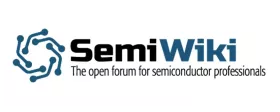HP, Palm, tablets, PCs, smartphones
Hewlett-Packard purchased Palm last year for over a billion dollars primarily to get their hands on the WebOS operating system for powering its tablets and smartphones. It's turned out to be much too little too late. Despite WebOS being a new operating system with many attractive features, HP's tablet offering, the TouchPad, has been a major bust, selling in the hundreds and leaving major retailers complaining about their inventory and wanting HP to take it back. So HP announced yesterday that it was getting out of the tablet and smartphone business. WebOS may find a home (and the most likely would be someone who is currently betting on Android and worried that now that Google has to make real money on Android to justify its $6B acquisition of Motorola Mobile maybe they should hedge that bet; but it will be an expensive hedge). I don't know why HP expected to be a big hit out of the gate with its WebOS strategy, and if it didn't have the stomach for a lengthy race and thought it was a sprint, I don't know why they bothered to get into the business in the first place.
To read the full article, click here
Related Semiconductor IP
- Configurable CPU tailored precisely to your needs
- Ultra high-performance low-power ADC
- HiFi iQ DSP
- CXL 4 Verification IP
- JESD204E Controller IP
Related Blogs
- Will Tablets Kill Wintel?
- What did it cost to get Nokia to adopt Microsoft Windows Phone 7 as the OS for its new smartphones?
- So soon? Lenovo announces ARM- and x86-based tablets. An early skirmish in the war for PC processor sockets?
- Smartphones shipments, Sky is the limit ...
Latest Blogs
- The Memory Imperative for Next-Generation AI Accelerator SoCs
- Leadership in CAN XL strengthens Bosch’s position in vehicle communication
- Validating UPLI Protocol Across Topologies with Cadence UALink VIP
- Cadence Tapes Out 32GT/s UCIe IP Subsystem on Samsung 4nm Technology
- LPDDR6 vs. LPDDR5 and LPDDR5X: What’s the Difference?
